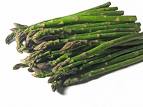

TEENAGERS
ANAEMIA (IRON): Teenage girls, particularly vegetarians are prone to anaemia. Partly because they loose iron in menstruation
at the same time as not getting it in the diet. Leafy green vegetables and apricots are good iron sources, but unless you eat
red meat twice a week, he recommends that teenage girls take an iron supplement containing vitamin C to aid absorption.
ACNE (ZINC): Zinc is vital for growth and repair of tissues and it regulates hormones.Low levels can lead to hormone
sensitivity and imbalances, a common trigger for teenage acne. Found in green leafy vegetables and seafood, Nigel recommends
an intake of 15 to 30mg of zinc a day – the equivalent of two servings of green vegetables or one serving of seafood.
MOODS(B-VITAMINS): Teenage blues are exacerbated by low levels of B-vitamins as well as zinc, magnesium and selenium. Vitamin
B6 (50mg daily) in particular has been shown to reduce PMS related mood swings. To ensure sufficient B-vitamins and
magnesium, teenagers should be eating three to five helpings of vegetables a day. Brazil nuts are a good source of selenium.
BONES (CALCIUM): Calcium is contained in cheese but it is far better to get it from grains and leafy green vegetables. Also
regular weight-bearing exercise which encourages calcium deposition in the
bones.
EARLY TO MID 20s
ALCOHOL (DEHYDRATION):
For every unit of alcohol consumed drink at least half a glass of water on top of the daily water requirement of two litres
per day. Eat fresh fruit and vegetables and take a good multivitamin and mineral supplement, which includes vitamins B and C as these are destroyed by alcohol.
ENERGY & STRESS (B-VITAMINS): Vitamin B helps the body release energy and promotes skin and hair health. The Bs are also
stress busters supporting the adrenal glands and nervous system. In addition to eating plenty of fresh vegetables, take a B
complex supplement to boost energy levels and reduce stress.
LATE 20s TO MID 30s
FERTILITY (MULTI VITAMINS/ZINC): Zinc plays a key role in fertility so a diet rich in leafy green vegetables and seafood for
good for women, and men, attempting to conceive. Vitamins C and E found in fruit and vegetables are also implicated in health reproductive function.
PREGNANCY (FOLIC ACID/OILY FISH): Women of childbearing age should consider a folic acid supplement (400mg daily) as this
reduces the risk of key birth defects. Pregnant women should also eat lots of oily fish containing essential fatty acids as these help with brain development in unborn babies.
AGEING AND WRINKLES (ANTIOXIDANTS): To slow the formation of wrinkles, drink plenty of water to prevent dehydrated skin and
eat lots of fruit and vegetables containing antioxidant nutrients which fight the effects of ageing. A daily antioxidant
supplement should be taken to protect against ageing diseases such as those of the heart or cancer.
STRESS (GINSENG/B-VITAMINS): Career and personal life stress can be assisted with B-vitamins and
Siberian Ginseng, a herbal supplement that protects the adrenal glands,
MID 30s TO 40s
SLOWING METABOLISM (HEALTHY SNACKS): Metabolism slows with age resulting in weight gain but a major study recently found that snacking – eating little and often – could prevent this. Blood sugar is also better controlled, preventing hunger pangs. To boost your metabolic rate, he also recommends Kelp supplements which contain iodine, a substance needed by the thyroid gland which regulates food breakdown.
WATER RETENTION (OILY FISH/SEEDS): Water retention, dry skin and mood swings at this age may be caused by low-fat diets
replacing them with so called slimmers’ foods. The body needs good fats for
skin health, hormone production and water regulation, so always remember to eat oily fish or seeds which contain essential fats. Eat slow release carbohydrates in fresh fruits and vegetables rather than slimming foods.
SKIN (EVENING PRIMROSE OIL): As well as antioxidant vitamins, eat plenty of oily fish or supplements of Evening Primrose Oil to prevent dry skin and fat soluble vitamins which fight wrinkles.’
50s AND 60s
MENOPAUSE (SOYA BEANS): Soyabeans and their derivatives Tofu and Tempeh – are rich in plant oestrogens, which replace falling oestrogen levels at the menopause. Eating two servings daily, or a 30mg supplement of soya isoflavones can offset the menopausal symptoms such as osteoporosis and mood swings. Tofu is also known to lower breast cancer risk.
HOT FLUSHES (BLACK COHOSH): A herbal remedy, available from most health
food shops, has been found in scientific studies to relieve hot flushes.
70 PLUS
IMMUNITY (THYME): Thyme picked from the garden and used in food is an excellent antioxidant and immune boosterUsed as an infusion in hot water, or rubbed onto the skin in oil, it can also break up mucus to relieve congestion. Eat little and often as large meals strain the digestive system, especially in the elderly, lowering immune function.
MEMORY (GINKGO BILOBA): This herbal supplement boosts circulation and oxygen supply helping prevent cold hands and feet. Studies have also found it effective in preventing memory loss and dementia.’
JOINTS (GLUCOSAMINE): Glucosamine is produced naturally in the body to repair cartilage, but with age, we produce less and less. Supplementation with glucosamine sulphate has been found to promote joint repair and supplements of 500mg daily can even reverse mild arthritis.’
To keep bones healthy, you should also eat lots of calciumrich grains and leafy green vegetables.






